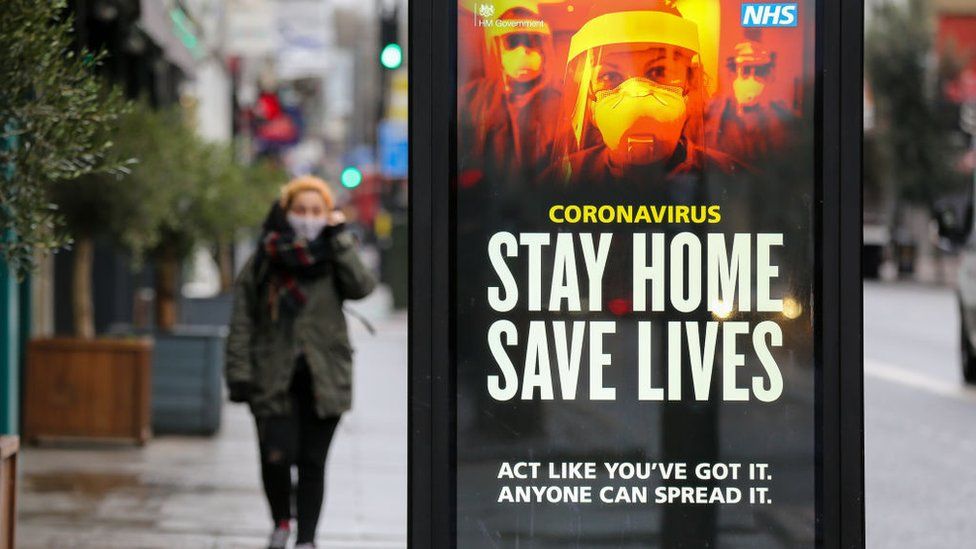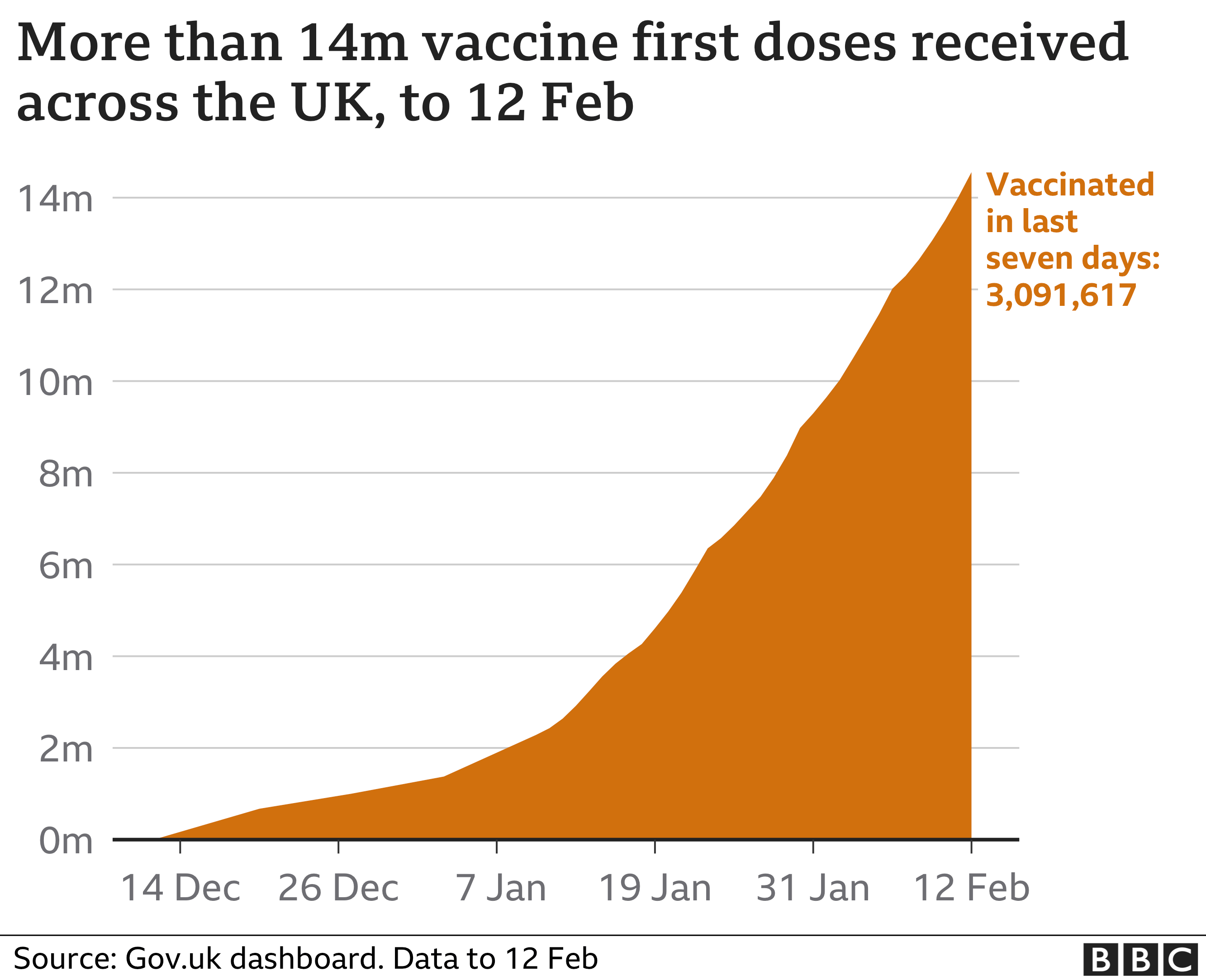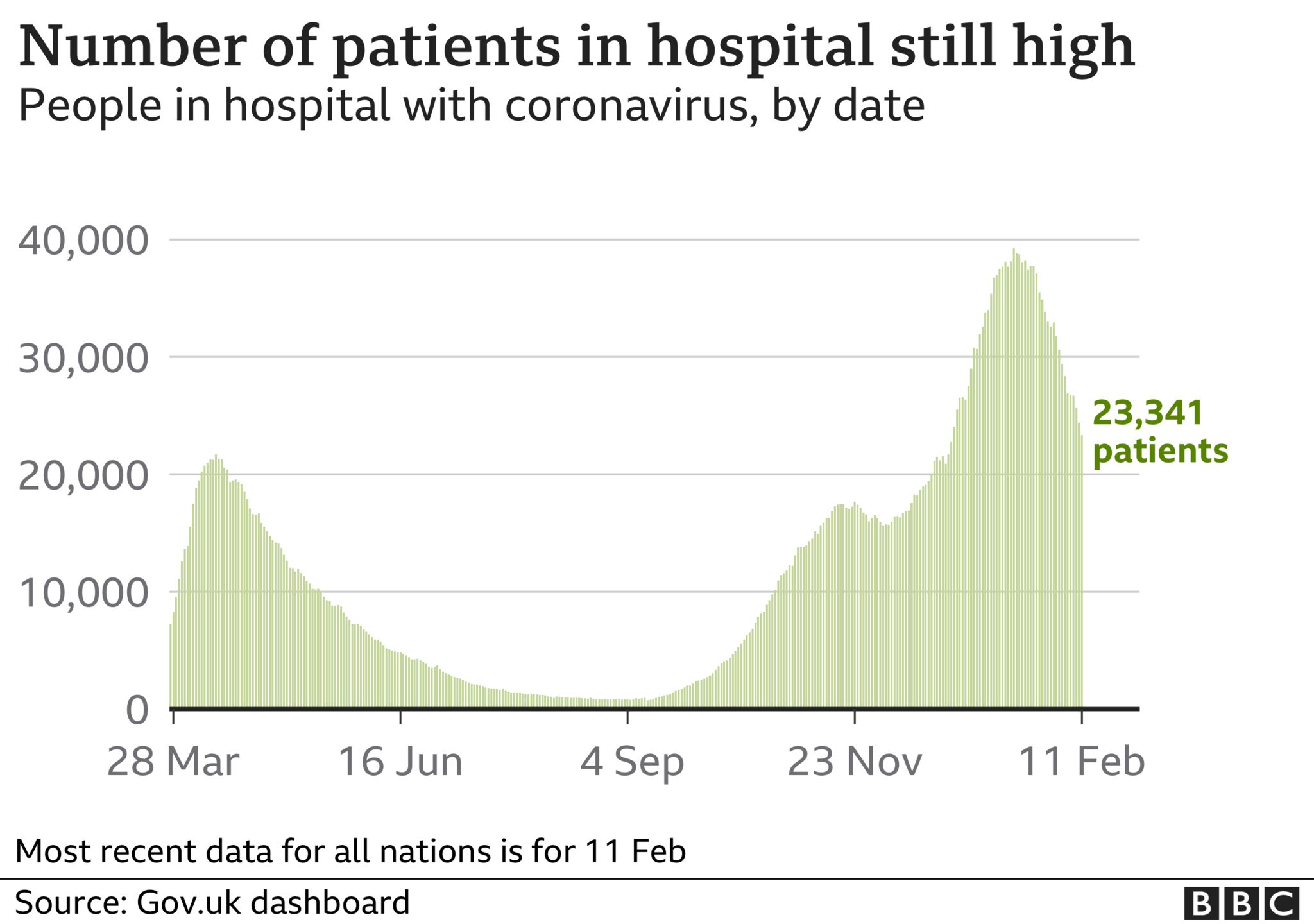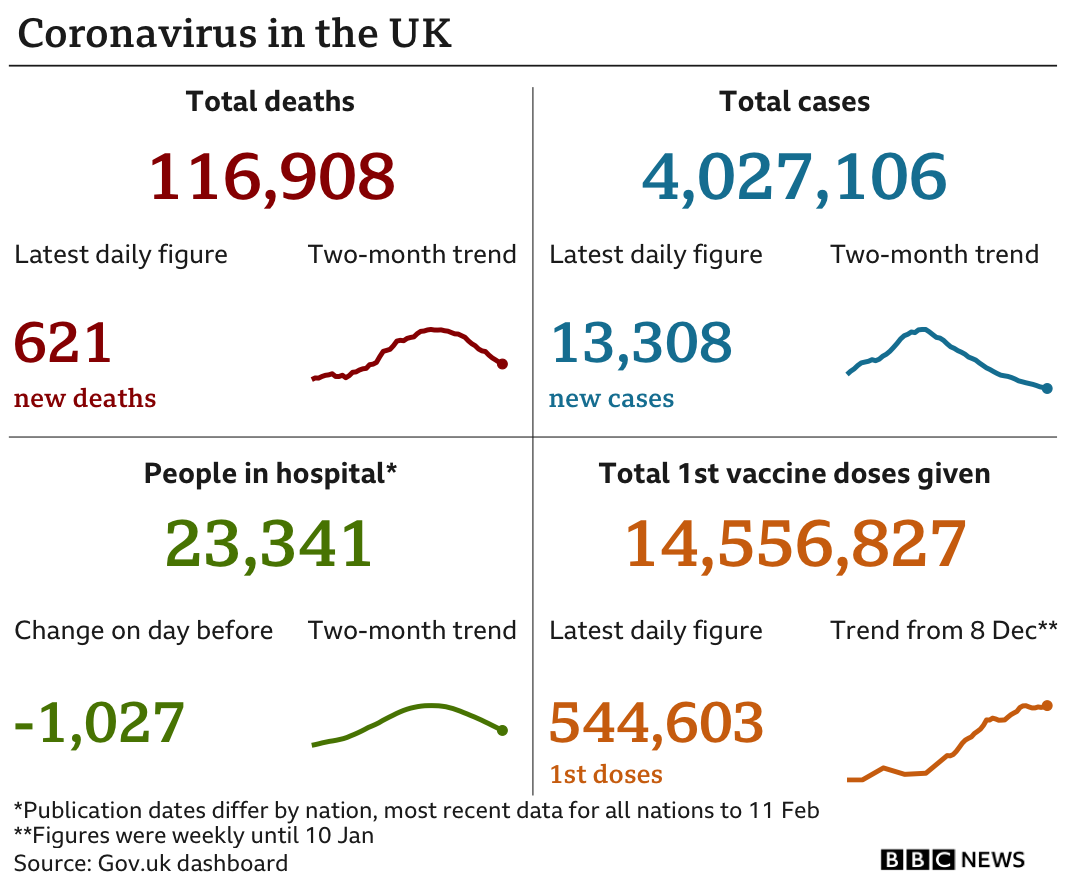Covid: Remove all lockdown laws by May, Tory MP group demands
 image copyrightGetty Images
image copyrightGetty ImagesAll coronavirus legal restrictions must be permanently lifted by the end of April, a group of Tory backbench MPs has demanded.
The lockdown-sceptic Covid Recovery Group (CRG) has written to the PM to say there will be no justification for Covid laws once the nine priority groups have been vaccinated.
Boris Johnson said on Saturday he plans a "cautious" reopening.
So far 14.5 million people have had at least one dose of the vaccine.
Formed in November to oppose a third lockdown, the CRG - which has 63 MPs backing its letter - said the pace of the vaccine rollout meant the prime minister had to set out a plan for "a return to normal life" from 8 March.
The prime minister has promised to outline a "road map" on 22 February for lifting lockdown, with restrictions on outdoor recreation expected to be among the first to be relaxed.
A Downing Street source told the BBC it had always been the aim for all children at schools in England to return to the classroom on 8 March - one of the Covid Recovery Group demands.
Mr Johnson said he was optimistic but cautious about relaxing restrictions, stressing the need to avoid "any kind of retreat or reverse ferret" into lockdown again.
But the CRG said that by 8 March people aged 70 and over, care home residents, and people with conditions that make them extremely vulnerable to the virus, will start to receive some protection from the vaccine, meaning that "unnecessary restrictions" should be lifted.
These top four priority groups account for about 88% of the deaths and 55% of the patients in hospital with Covid-19, the CRG said.

Ministers and health officials have said the UK is on track to reach its target of offering a first dose of the vaccine to everyone in the top four priority groups by Monday - covering about 15 million people.
The vaccine rollout has been officially extended to people outside these groups, with invitations for appointments going out to people aged 65 to 69 in England and those aged 16 to 65 in an at-risk group.
The "tremendous pace" of vaccination makes it harder to justify Covid restrictions, the CRG letter said.
"All restrictions remaining after 8 March should be proportionate to the ever-increasing number of people we have protected," the group said, adding that the burden of proof should be on ministers to show restrictions are necessary.
They called for pubs and restaurants to open by Easter in a "Covid-secure" and "commercially viable" way, saying two-thirds of the people in the nine priority groups should have had a first vaccine dose by then.
And they said the UK was on track to vaccinate all these priority groups, including everyone over 50 and people with medical conditions that put them at greater risk, by the end of April.

- LOCKDOWN RULES: What are they and when will they end?
- SCHOOLS: When will they reopen?
- VACCINE: When will I get the jab?
- NEW VARIANTS: How worried should we be?

When the country reaches this point "there is no justification for any legislative restrictions to remain", they told Mr Johnson.
"The vaccine gives us immunity from Covid but it must also give us permanent immunity from Covid-related lockdowns and restrictions," group leaders Mark Harper and Steve Baker wrote.
The CRG said lockdowns have caused "immense social and health damage and have a huge impact on people's livelihoods".

Scientists have urged the government to reopen carefully, saying that there is still potential for another surge in cases.
Prof Steven Riley, a member of the scientific modelling group that advises government, said if the government relaxed all restrictions, there could be another wave of infections.
And Adam Finn, a member of the Joint Committee on Vaccination and Immunisation, warned against an "unstable" cycle of opening venues and then being forced to close them again.
"It's worse to open up, have another wave of pandemic, another bunch of hospitalisations and have to close down again than to be able to progressively normalise things," he told the BBC.


- JESY NELSON 'ODD ONE OUT': Jesy opens up about cyberbullying abuse and the effect it's had on her mental health
- 'Man Up': Honest conversations about what it's like to be a man today



No comments